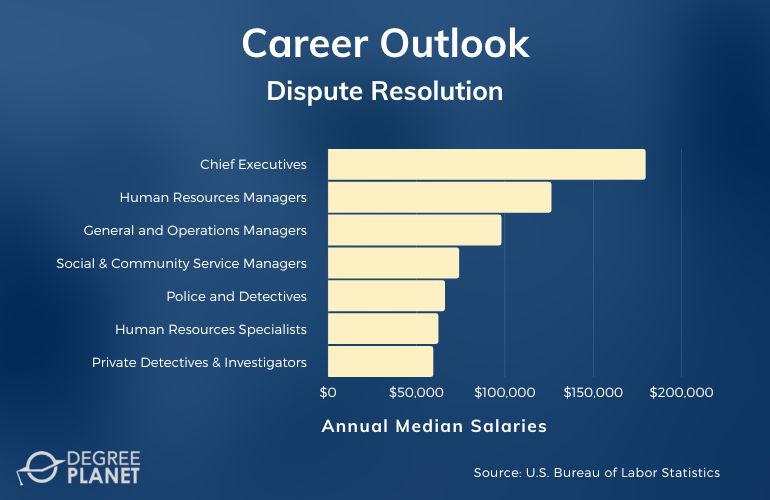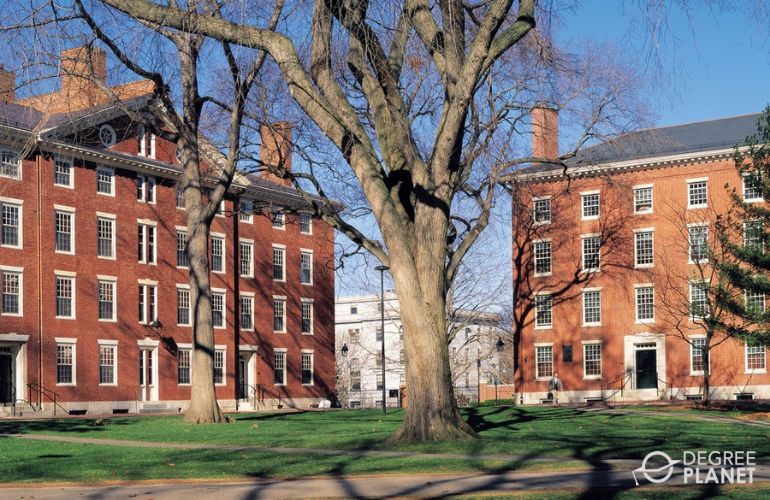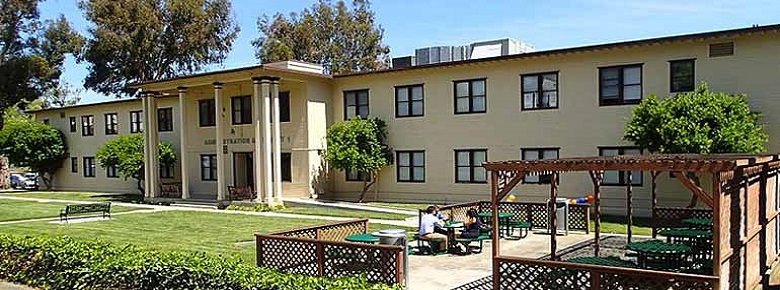If you excel at helping your friends, coworkers, and family members navigate their problems and make compromises, you may be well-suited to a masters in dispute resolution.

This degree program allows you to further develop your skills in negotiation, communication, and analysis. Dispute resolution professionals play an integral role in addressing conflicts in different environments, including businesses, classrooms, and government offices.
Editorial Listing ShortCode:
Earning a masters degree in mediation and conflict resolution could be the next step in your professional journey.
Online Masters in Dispute Resolution Programs

An online master’s in dispute resolution is a strategic program for new graduates who want to strengthen their resumes before entering the workforce. It’s also a strategic path for working professionals hoping to advance or change their careers.
Similar to an online masters in compliance degree program, many online dispute resolution programs accept students regardless of their undergraduate majors. Students with backgrounds in areas like law, communication, business, social work, and counseling have a strong academic foundation that aligns well with a dispute resolution degree.
While earning conflict resolution masters degrees, some of the subjects students can expect to explore include:
- Negotiation
- Critical reasoning and analysis
- Research skills
- Ethics
- Laws and the legal system
- Conflict and mediation theory
- Psychology
- Communication
- Multiculturalism
In combination, these topics allow students to become adept at lowering tension, interpreting reactions, and presenting options for parties who are caught in a disagreement. Successfully mediating a conflict is a vital service in virtually every industry.
Editorial Listing ShortCode:
After graduating with a masters in negotiation or dispute resolution, many students become arbitrators, mediators, and conciliators. These roles all work with individuals or organizations who are struggling to overcome conflict.
Possible employers for these kinds of professionals include:
- Healthcare facilities
- Government agencies
- Insurance companies
- Schools
- Law firms
- Private businesses
- Nonprofits
- Real estate companies
If you do not want to work directly in arbitration and mediation, there are many other applications for this skill set. For example, some dispute resolution professionals work as public policy analysts, chief executive officers, or human resources managers. All of these positions require negotiation and conflict management skills.
A dispute resolution master’s degree may also enable you to work as an independent consultant. Rather than offering your services to a single company, you might work with a variety of clients who pay you to help diffuse conflicts on an as-needed basis.
Dispute Resolution Careers & Salaries

The ability to resolve conflict and come to agreeable terms among parties is critical in many different situations. Government agencies, law firms, private businesses, and insurance companies all seek professionals with these skills.
Professionals in a variety of roles can benefit from gaining expertise in dispute resolution. The type of positions you can qualify for may also depend on your prior education and work experience.
According to the Bureau of Labor Statistics, here are the median wages of some of the career paths that can benefit from professionals with conflict resolution skills.
| Careers | Annual Median Salaries |
| Chief Executives | $179,520 |
| Human Resources Managers | $126,230 |
| General and Operations Managers | $97,970 |
| Social and Community Service Managers | $74,000 |
| Police and Detectives | $66,020 |
| Human Resources Specialists | $62,290 |
| Private Detectives and Investigators | $59,380 |
| Social Workers | $50,390 |
| Arbitrators, Mediators, and Conciliators | $49,410 |
| Substance Abuse, Behavioral Disorder, and Mental Health Counselors | $48,520 |
Many graduates of dispute resolution master’s degree programs go on to become arbitrators, mediators, and conciliators. These professionals are responsible for helping opposing parties work through their problems and find acceptable results.
Editorial Listing ShortCode:
Other people transfer their skills to a different environment. They might help negotiate terms between labor unions and businesses, diffuse difficult situations in the workplace, or help friends and family members reconcile after longstanding resentments or disagreements.
Master of Dispute Resolution Curriculum & Courses

The curriculum of a masters program in dispute resolution focuses heavily on communication, analysis, and negotiation skills. Common courses in these programs include:
- Introduction to US Law: This class provides an overview of the laws and legal systems within the United States, including types of laws and legal conflict resolution processes.
- Legal Research and Writing: In this course, you’ll learn how to conduct legal research, communicate clearly through writing, and analyze written communications.
- Cross-Cultural Conflict: Misunderstandings due to cultural differences are a significant driver of conflict, and this course explores the impact that culture has on negotiations and mediation.
- Psychology of Conflict and Communication: Students in this class learn about the sources of conflict and how factors like empathy and rationality influence decision-making and dispute resolution.
- Employment Disputes: In this class, you’ll focus on workplace disputes, with an emphasis on claims of discrimination, harassment, and wrongful termination.
- Environmental and Public Policy Dispute Resolution: The focus of this course is the process that mediation and arbitration professionals use to resolve public policy disputes, especially those related to environmental concerns.
- Mediation Theory and Practice: Students in this course discover different mediation styles and theories about when intervention is necessary and how it should occur.
- Group Processes: Conflicts often play out differently when large groups or organizations are involved, and this course centers on issues like multi-party arbitration, international work, and media involvement.
- Contract Law: This class teaches you about contract law within the United States, including what contracts should include and what purpose they serve.
- Divorce and Family Mediation: This course explains the role of a mediator in divorce proceedings or family disputes, with an emphasis on how to avoid litigation.
Some dispute resolution programs focus more on corporate, legal, or government perspectives, while others offer a more general view of the field.
Admissions Requirements

The admissions requirements for master’s programs in dispute resolution differ from school to school, but these are some standard criteria:
- GRE scores. Some schools require minimum GRE scores for admission, but others do not.
- Transcripts. You’ll provide official transcripts from any previous academic degrees and coursework.
- Resumé. You can detail your relevant professional, academic, and volunteering experience.
- Personal statement. You’ll typically write a brief essay explaining your interest in the program and how it connects to your career goals.
- Recommendations. You may request letters from supervisors and instructors who are familiar with your skills.
Some colleges also request a lengthier writing sample to demonstrate your communication skills.
Accreditation

When choosing a dispute resolution master’s program, accreditation is an important consideration. Schools can receive national or regional accreditation after undergoing a stringent assessment and evaluation process.
Editorial Listing ShortCode:
Attending a regionally accredited school is most beneficial because they have the highest academic standards. This helps ensure you receive a quality education that may strengthen your candidacy for a future job. It’s also typically easier to transfer credits from regionally accredited programs, which is essential for switching schools or applying to a doctoral program.
Financial Aid and Scholarships

Attending graduate school may open doors to more opportunities, but it also requires a significant financial investment. There are many financial aid resources that qualifying students can use to help fund their degrees.
The first step for most students is to file a FAFSA. This application determines whether you are eligible for federal aid, which could significantly lessen the upfront costs of tuition and fees. If you are an in-state student, your state government may also offer grant or aid programs.
Working professionals can also benefit from speaking to their supervisors or human resources departments about tuition assistance and reimbursement programs. Many organizations financially support their employees’ advanced education pursuits.
Scholarships are another critical source of aid. You could search an online database or speak to a financial aid representative at your prospective school to learn about scholarships that are designed for your degree or personal circumstances.
What Is a Dispute Resolution Masters Degree?

A dispute resolution masters degree is an academic program that centers on understanding, analyzing, and finding solutions to conflicts. It’s a degree that could help you develop versatile skill sets that are applicable to a range of industries, such as business, law, or counseling.
As a student in a dispute resolution master’s program, you can learn why conflicts emerge and how to settle them. This requires advanced knowledge and skills in research, psychology, communication, and leadership. Many programs in this field give students practical experience in conflict resolution through role-play or internships. Students encounter realistic disputes and seek ways to resolve them.
What Can You Do with a Master in Dispute Resolution?

A master’s degree in dispute resolution is well-suited to a number of career paths, including mediation, human resources, social services, law enforcement, counseling, and investigations.
Dispute resolution is also a logical field of study for managers. For example, a human resources manager with training in conflict resolution may be more adept at addressing employee conflict, harassment concerns, and problematic work conditions.
Many dispute resolution professionals earn above-average salaries. Holding a masters degree may also increase your earning potential and help you qualify for more senior or leadership roles. The types of positions you qualify for could depend in part on your prior education and work experience.
How Long Does It Take to Get a Masters in Conflict Resolution Online?

Most masters degrees can be completed in 1 to 2 years of full-time study. The amount of time it takes to graduate with a dispute resolution master’s degree depends on the structure of the program and your personal situation. Many programs require students to complete between 32 and 36 credit hours.
A full-time student who attends classes during the summer can often complete this degree within 1 year. It generally takes longer for part-time students to graduate. If a dispute resolution master’s program has a thesis requirement, that may also extend the timeframe to complete your degree.
Is a Masters in Dispute Resolution Worth It?

Yes, a masters in dispute resolution is worth it for many students. Conflict is a concern in every organization, and dispute resolution specialists are essential to prevent lengthy periods of division or disagreement.
If you are passionate about problem-solving and negotiation, you might find a career in dispute resolution rewarding. Professionals with these skill sets may help an organization maintain a united front, help a struggling population find justice, or help a family find a peaceful resolution to their problems.
Editorial Listing ShortCode:
According to the Bureau of Labor Statistics, many careers in this area are expected to experience positive job growth over the next ten years. For instance, 6% job growth is projected for arbitrators, mediators, and conciliators.
Universities Offering Online Masters in Dispute Resolution Degree Programs
Methodology: The following school list is in alphabetical order. To be included, a college or university must be regionally accredited and offer degree programs online or in a hybrid format.

Pepperdine University offers a Master of Dispute Resolution program online. Courses typically explore topics such as U.S. law, legal research, cross-cultural conflict, communication skills, and employment disputes. The completion of 16 credit hours is required. Pepperdine’s program was ranked number 1 for dispute resolution by U.S. News & World Report.
Pepperdine University is accredited by the Accrediting Commission for Senior Colleges and Universities of the Western Association of Schools and Colleges.

Regent University offers a Master of Arts in Law program online with a specialization in Alternative Dispute Management. The program focuses on topics such as corporate administration, human resources, social services, and real estate. The program requires the completion of 32 credits and is designed to be completed in 5 semesters.
Regent University is accredited by the Southern Association of Colleges and Schools Commission on Colleges.

Touro University Worldwide offers an online program for a Master of Arts in Dispute Resolution. The curriculum aims to teach the management of organizational conflicts through negotiation, mediation, arbitration, and facilitation. Classes are typically 8 weeks long. The program may permit the transfer of up to 9 of the 36 required credit hours from outside institutions.
Touro University is accredited by the Middle States Commission on Higher Education.

Trinity International University offers a Master of Legal Studies program online with a concentration in Alternative Dispute Resolution. Potential courses include Alternative Dispute Resolution, Meditation, and Negotiation Theory and Practice. The program requires the completion of 30 credits. Terms are typically 7 weeks long, and there are commonly 6 yearly start dates.
Trinity International University is accredited by the Higher Learning Commission.

The University of Arizona offers a Master of Legal Studies program online or on campus with a concentration in Alternative Dispute Resolution. The program may be tailored according to interest, and there is usually a part-time option. The program focuses on topics such as labor relations, law enforcement, and legislative affairs. The completion of 30 credits is required.
The University of Arizona is accredited by the Higher Learning Commission.

The University of Missouri offers an online program for a Master of Laws in Dispute Resolution. Courses commonly explore topics like cross-cultural disputes, conflict management, and public policy. The program requires the completion of 24 credits and typically 2 classes are taken each semester. The average time to complete the program is 2 years with full-time attendance.
The University of Missouri is accredited by the Higher Learning Commission.
Getting Your Masters in Dispute Resolution Degree Online

If you find yourself constantly helping to settle disagreements, you may have a natural talent for dispute resolution. During a dispute resolution masters degree program, you can learn about the nature of conflict and develop the skills necessary to resolve it in a healthy and productive way.
Earning a masters degree in dispute resolution may help you advance your professional qualifications and increase your earning potential. Online masters degree programs are more flexible and can often meet the needs of full-time students and working professionals.
You can begin your journey toward a career in conflict resolution today by researching online masters degrees from accredited colleges and universities.

